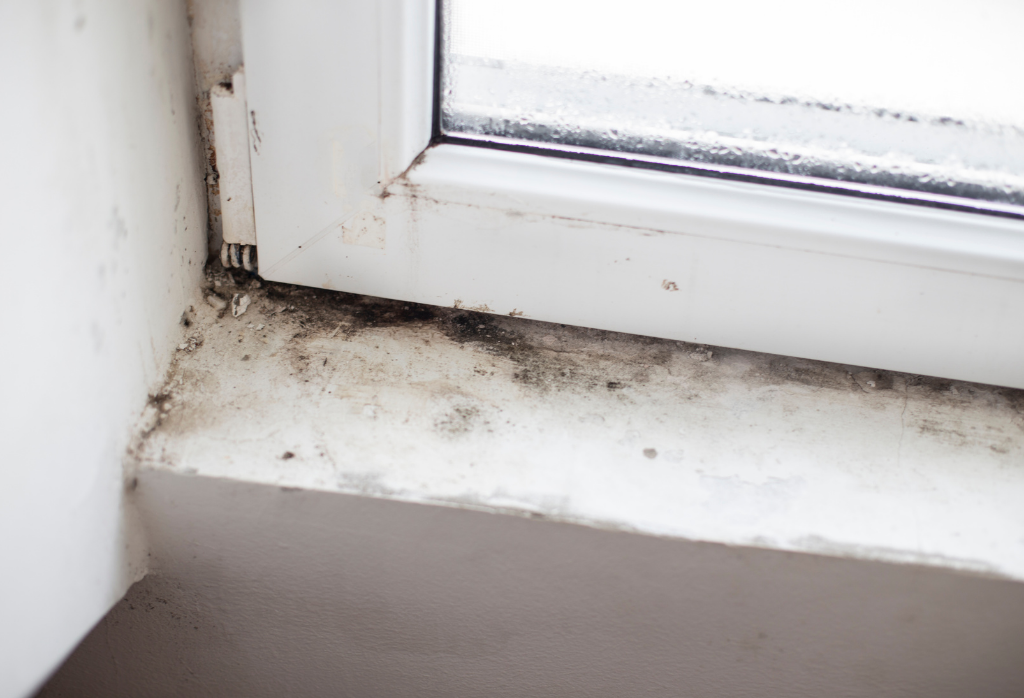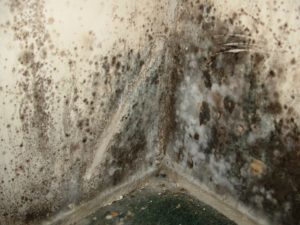What Does Mold In A Basement Smell Like?

Excess water in the basement is the biggest cause of mold growth, but the moisture may be in hard-to-see parts of this below-ground level. One way most homeowners first detect mold with their nose – the odors of mold can be easily detected. How can you pick out mold from ordinary home aromas?
Why Does Mold Smell?
The unpleasant odors from mold come from the microbial volatile organic compounds (mVOCs) it releases as it grows. Traditional volatile organic compounds (VOCs) are mainly industrial-made chemicals that are released (called “off-gassing”) by furniture or wood products that have been finished with dyes and sealers.
mVOCs are released through the digestion, growth, and reproduction of fungi and bacteria, and they can off-gas a wide range of alcohols, carboxylic acids, aromatic compounds, sulphur, and nitrogen compounds. A single species can produce many different smells depending on where it is in the cycle of digestion, maturity, and reproduction. What smells indicate unwanted mold growth?
Musty Smells Indicate Mildew Growth
Mold does not always have a strong smell, nor does all mold smell the same. When it’s forming in a basement, homeowners will often describe it as “musty.” A persistent musty smell is an  indication that there is a specific type of mold called mildew forming in your home.
indication that there is a specific type of mold called mildew forming in your home.
Mildew is not much different from mold – it’s a surface fungus that homeowners can differentiate from mold through its color. Mildew will look like a patch of gray or white fungus lying on the surface of a moist area. However, you’ll probably detect its growth first with your nose – a damp mustiness that will point to the presence of moisture in your home.
The Complex Aromas Of Mould
Apart from mustiness, mold can have a wide variety of smells. There are thousands of species and each can have very different odors. Some molds produce earthy smells while others produce sweeter aromas, and some can even give off the scent of fermented alcohol or rotting meat.
In general, the mVOCs given off by mold can be best described as pungent, musty, and moist. If you notice any smells with these characteristics, investigate their source immediately, as they might be caused by these unwanted fungal colonies and point to more severe drainage and foundation issues!
Are The Aromas Harmful To Your Health?
When you begin to smell mold in your basement, immediately contact a professional to handle the matter. Breathing in the spores can cause many different health effects, but can the smells themselves be harmful?
 The mVOCs that cause the smells associated with mold growth have been known to cause headaches, nasal irritation, dizziness, fatigue, and nausea. Mold symptoms can become quite serious, and if left unchecked, they can cause potentially deadly allergic reactions, lung infections and other serious health issues.
The mVOCs that cause the smells associated with mold growth have been known to cause headaches, nasal irritation, dizziness, fatigue, and nausea. Mold symptoms can become quite serious, and if left unchecked, they can cause potentially deadly allergic reactions, lung infections and other serious health issues.
Once you’ve handled the fungi, take care of the moisture on which future mold and mildew may thrive. Slow, constant leaks in the foundation can cause dangerous growths to come back, so it’s necessary to have them fixed as soon as they are noticed!
